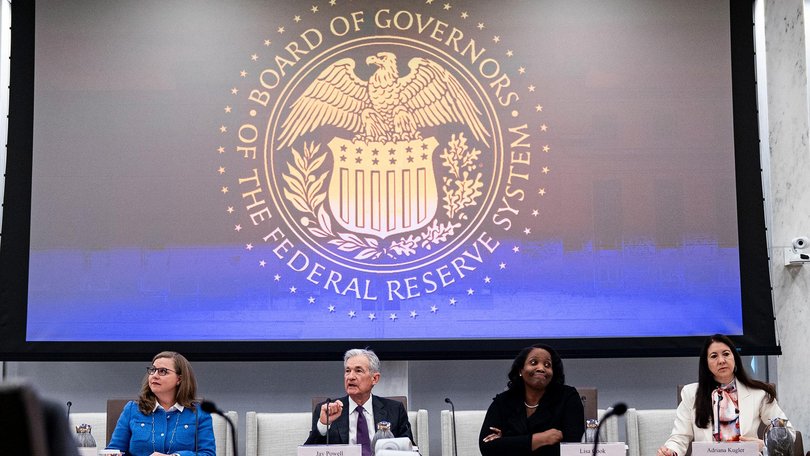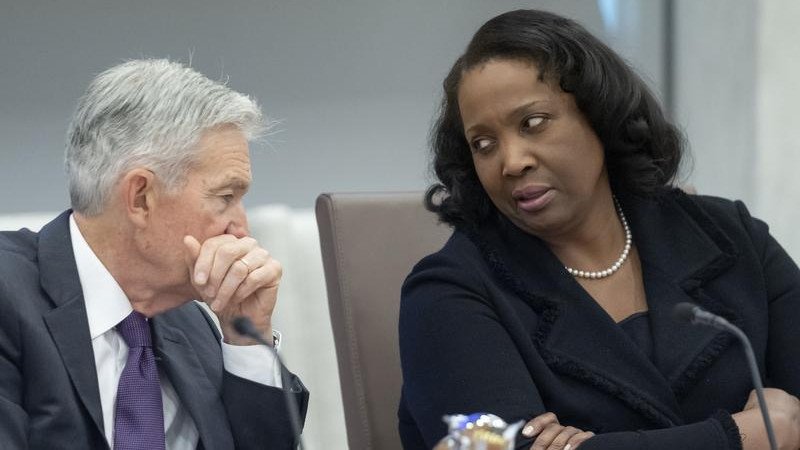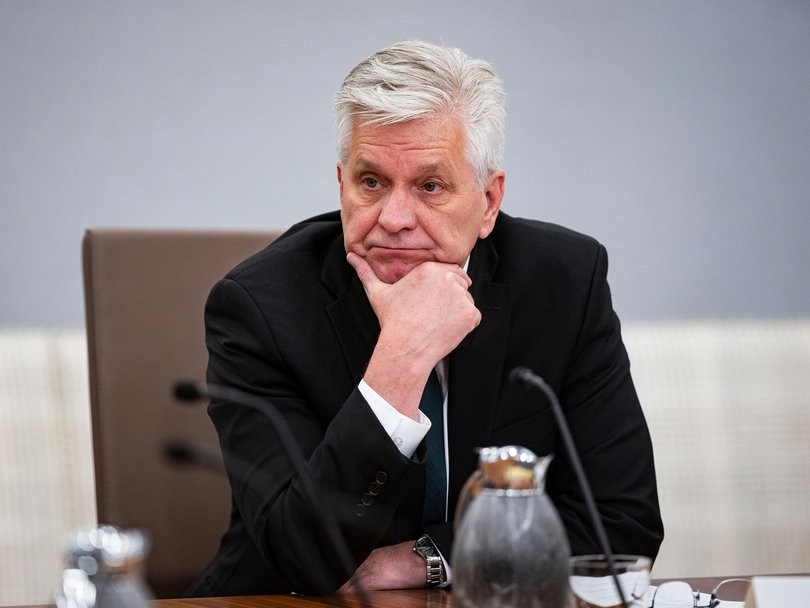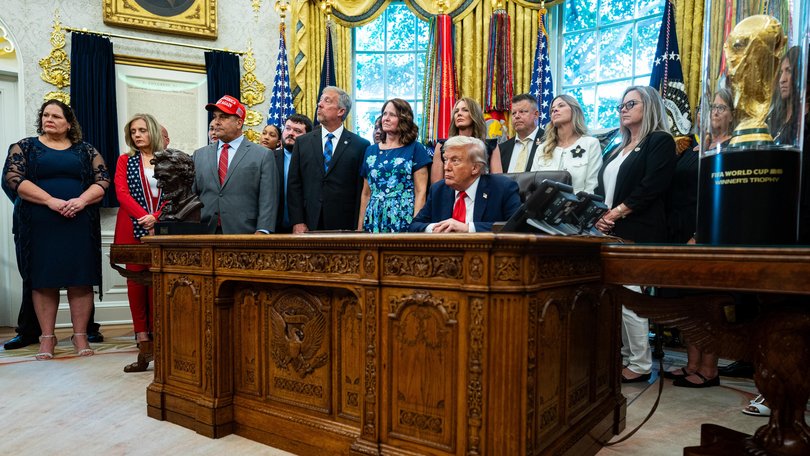THE ECONOMIST: Political meddling raises fears for America’s Federal Reserve Bank independence, interest rates
THE ECONOMIST: Donald Trump’s attack on Lisa Cook is yet another symptom of the corruption of America’s government.

It is the first time that an American president has tried to sack a governor on the board of the Federal Reserve. The credibility of the central bank is one of the underpinnings of America’s world-beating economy.
And yet, although dollar assets weakened a little on the news, financial markets are taking it all in their stride. Whatever is going on?
Donald Trump escalated his war against the Fed on August 25, saying he would fire one of its governors, Lisa Cook, for alleged misstatements in her mortgage applications. Fed governors can be sacked only for cause and Ms Cook, who has not been charged, has vowed to fight her dismissal in court. Yet everybody knows this is not really about mortgage fraud.
Sign up to The Nightly's newsletters.
Get the first look at the digital newspaper, curated daily stories and breaking headlines delivered to your inbox.
By continuing you agree to our Terms and Privacy Policy.
Instead, like a show trial, it is a message to anyone who serves on the Fed’s board that Mr Trump can impose his desire for low interest rates. On August 26 he crowed that “we’ll have a majority (on the board) very shortly.”
One reason investors are not yet panicking is that the president underestimates how much work he still has to do. Even if Ms Cook departs, his pick to replace her must gain confirmation from the Senate, a process that scotched the chances of Judy Shelton and Stephen Moore, Mr Trump’s nominees during his first term. And if they clear that hurdle, they will still be part of a committee that sets rates by majority vote.
Much is being made of the fact that the board contains Chris Waller and Michelle Bowman, who were successfully nominated by Mr Trump in his first term. No doubt he believes that makes them his creatures.

Mr Waller, the bookies’ favourite to succeed Jerome Powell, is no more of a presidential stooge than the incumbent. Mr Powell became Fed chairman in 2018 — under Mr Trump.
In addition, although Mr Powell’s term as chairman ends in May, his tenure as governor does not expire until January 2028. The convention is for him to retire next year, but these are convention-busting times and he could choose to stay on, denying Mr Trump the chance to fill another seat.
The markets, in other words, will have plenty of time and opportunities to panic before the president is in a position to pull the levers at the Fed.
But do not conclude that all must therefore be well. Investors would look on with alarm if the Fed were to have a super-chair seated behind the Resolute desk. And rightly so.
The memory of Richard Nixon strong-arming Arthur Burns into keeping rates low in the early 1970s, and the rampant inflation that ensued, has made the independence of the central bank one of the strongest norms in American politics.

All things being equal, greater political influence over the Fed will raise interest rates because of the extra risk of bad decisions. That is why investors are already demanding greater compensation to hold long-dated Treasuries, even as the Fed has cut rates and the economy has weakened.
Given Mr Trump’s wishes, the irony is obvious. What is more, the Fed’s independence is being attacked just as the government is racking up debt at a worrying pace. The more interest payments rise, the more tempting it will be to lean on the Fed, whichever party is in power.
Mr Trump’s attack on Ms Cook is yet another symptom of the corruption of America’s government. Allegations of mortgage fraud have also been made against Adam Schiff and Letitia James, two Democratic politicians. There is no telling who else could fall victim to the partisan trawl of mortgage applications and, who knows, tax returns. It is easy to imagine wronged Democrats one day returning the favour.
Originally published as How much danger is America’s central bank in?
